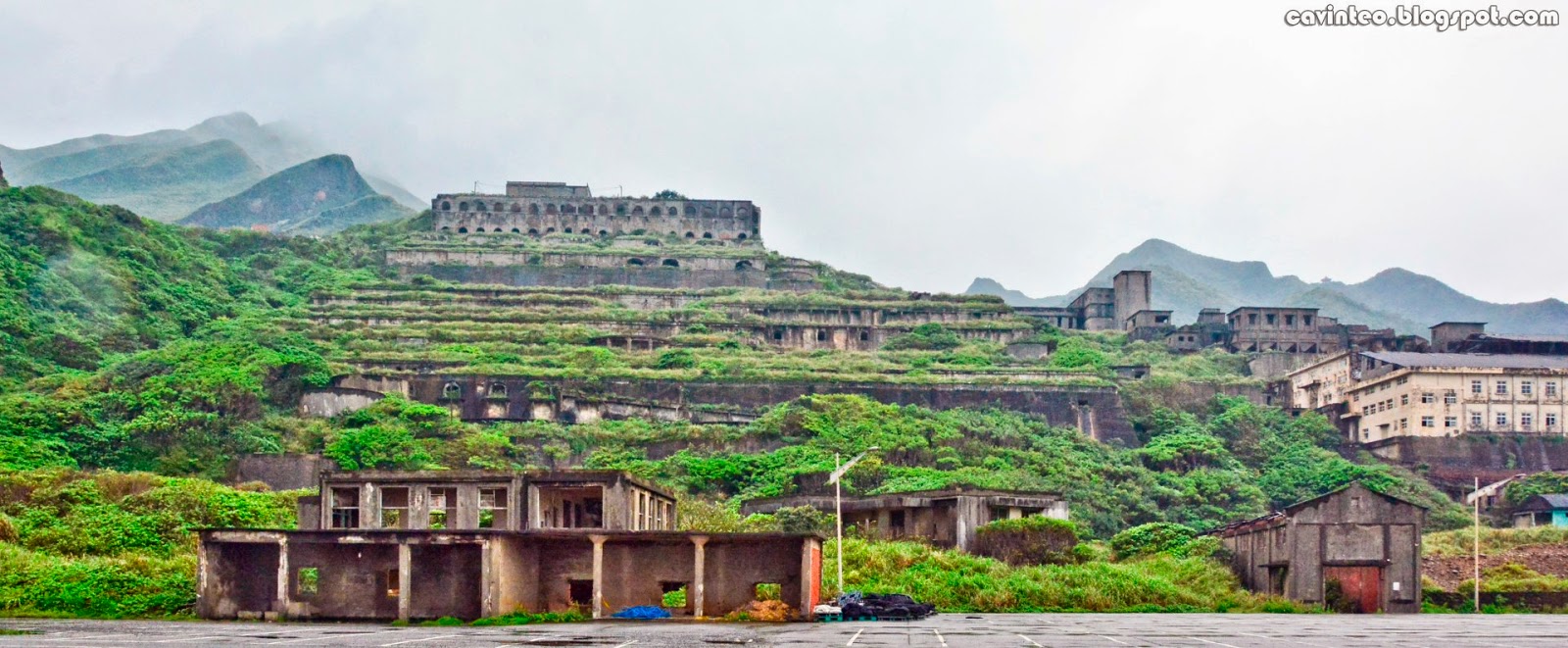When Mr Jiang brought us to this derelict building overlooking the expansive Pacific Ocean, my immediate thought was to determine if i could step out of the vehicle for a closer look.
Answer was a resounding "yes" although the local guide + chauffeur for our day trip was quick to add that the place has been disused for a few decades and the structures are no longer as stable; hence, we were cautioned to follow in his footsteps.
This is the only picture i have of Mr Jiang who was an extremely chatty gentleman! Haha. Coming back to the building, it is the top level of what is currently known as the remains of the 13 levels. Sounding almost like the 18 levels of hell, the entire place housed the Shuinandong Smelter for the mines.
The different levels served the purpose of the mining process; from sorting, smelting to refining. Such technical details bore me; i am only interested in the final product, especially it is gold!!
Notwithstanding the above, we were also as interested in the splendid sight in front of us! This, my dear readers, is the Yin-Yang Sea! Despite the spiritual connotation (for Chinese, Yin-Yang can also mean hell and earth), the origin of the name was simply attributed to the contrasting colours of blue and yellow of the sea.
Our spot also gave us a great view of the King Kong Mountain (黑金刚大山) which was then shrouded in clouds. I could not really understand at first why it was known as such even though Mr Jiang did his best to draw references from the shape of the mountain and pointed out the similarities.
Don't you just love the information panels placed up for the visitors with a much clearer description of the ape's head, fist, arm and butt!? Having said that, the first animal that came to my mind was that of an elephant.
Notice anything amiss from the picture taken next to the building?
Gigantic pipes, each 2-meter tall and 1.5-meter wide, which snaked up the hill - their existence was necessary to safeguard the health of the population staying around the smelter.
Known as smoke tunnels, the three pipe-like structures worked like power station chimneys which would help to bring the hazardous fumes from the smelter to a higher, less populated point where they were then released.
Now going back to the foot of the mountain where Mr Jiang stopped in front of this stream that flows directly from the gold waterfall i blogged about previously.
Most of the rocks featured a smooth, milk tea colour that was a result of contact with the metallic oxidised water. Those who enjoy drinking milk tea might have that sudden urge to have a cup of hot milk tea!
Right at the corner, i noticed another chemical process in action although this time, it had a metal-greenish shade with a much slower flow.
Another abandoned building; this time beside the milk tea stream. I wonder if kids in their teens would pop by at night; if this is in Singapore, i bet you would see groups of thrill seekers when the sun sets.
A full blown impressive view of 'Remains of the Thirteen Levels' - i honestly thought this should be classified as a cultural relic (industrial)! Mr Jiang vividly remembers the scene in his youth when the smelter was still operational with water cascading down the levels. "It was beautiful", he exclaimed!
Close up look of Yin-Yang Sea. Truthfully, it looked much better when i was on top of the thirteen levels. At the ground level, i was under the more acceptable impression that it was just polluted with sewage seeping into the ocean!
These phallic concrete / cement structures. though an eyesore to the surrounding, play an important role against strong, pounding waves during the typhoon season!
I did indicate before the water could not be drunk; what about the fishes caught in those waters?
=====
For an overview of my 9 Days, 8 Nights Taiwan Trip [Cingjing (清境) - Sun Moon Lake (日月潭) - Taichung (臺中) - Taipei (臺 北)], click HERE.
+@+Jinguashi+%5BTaipei,+Taiwan%5D+(Large).jpg)